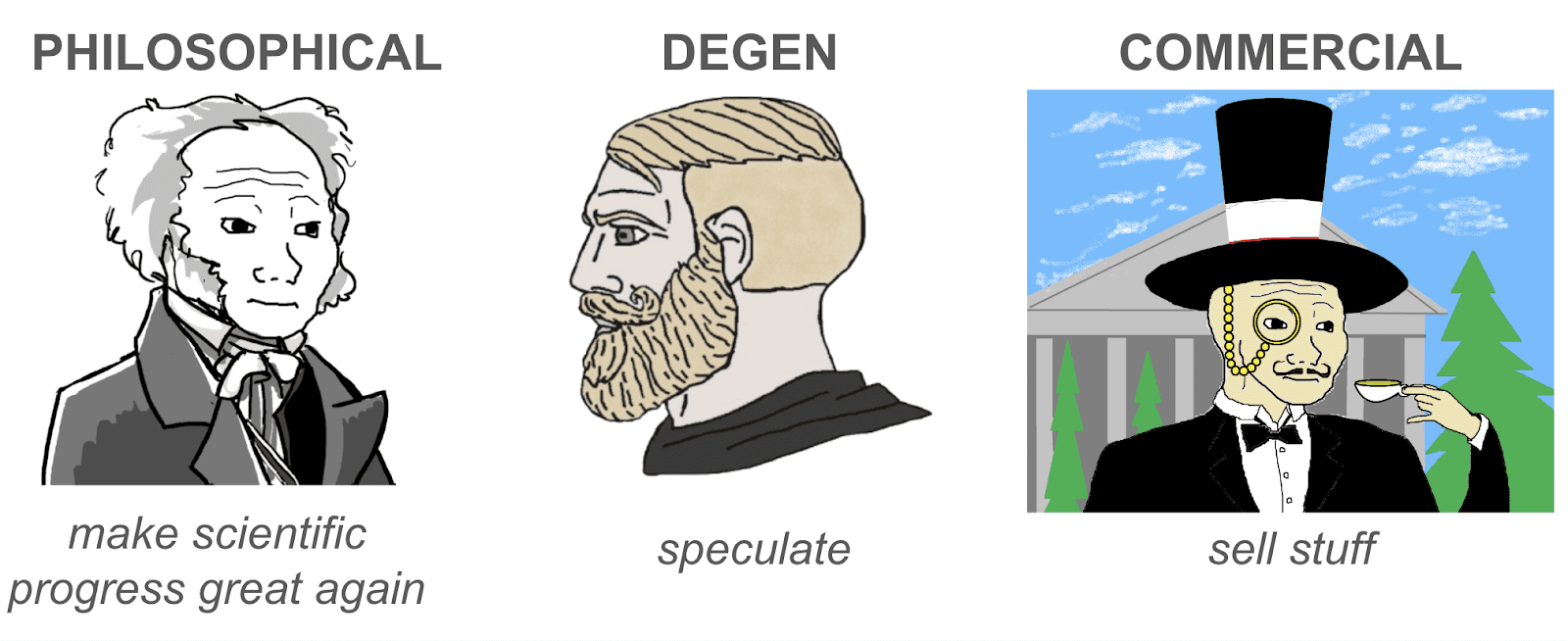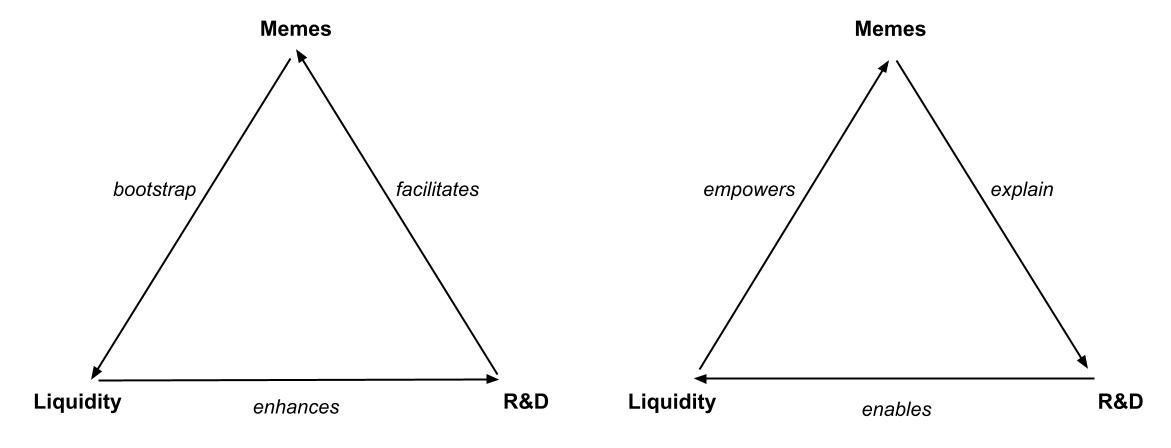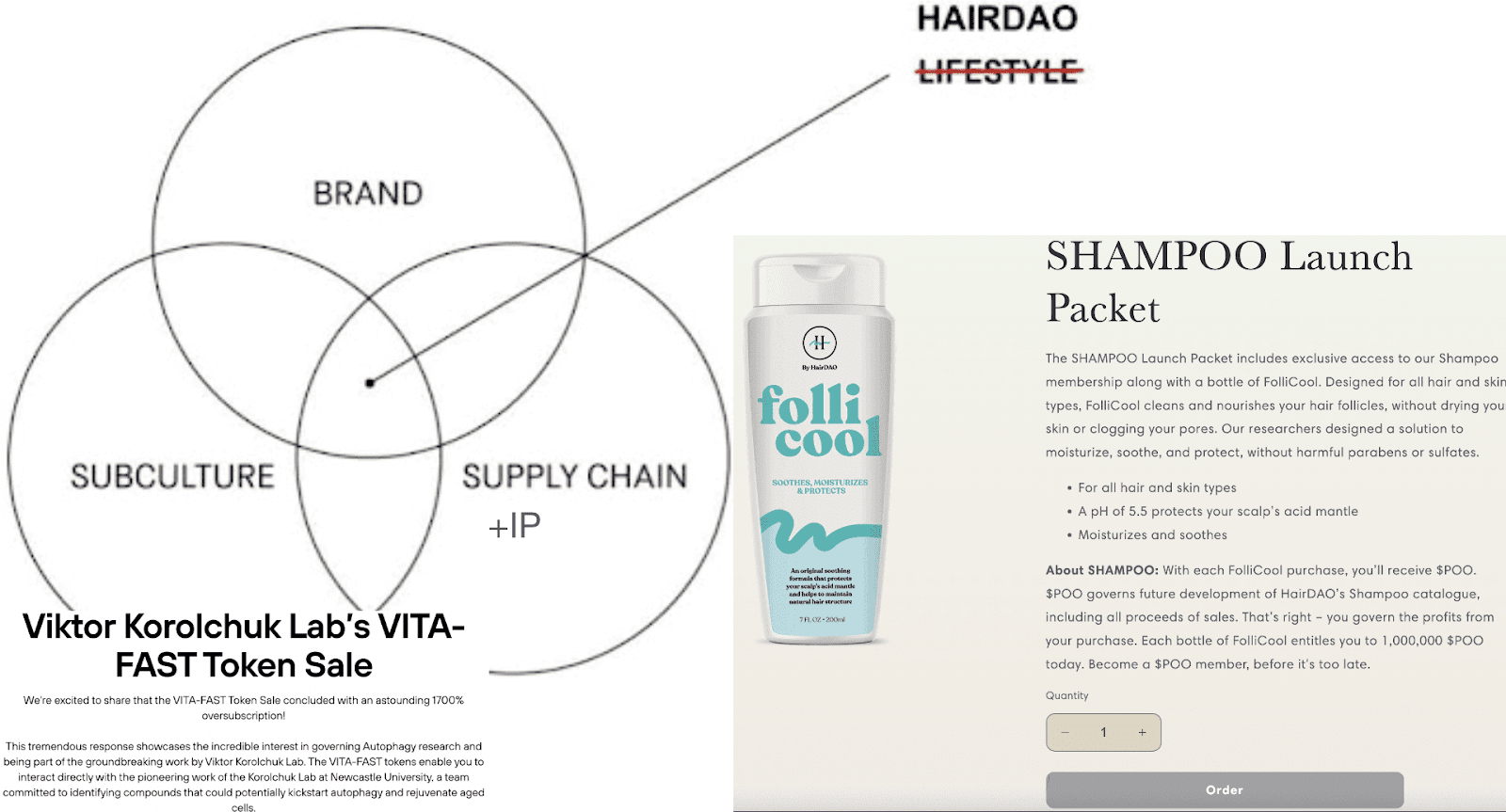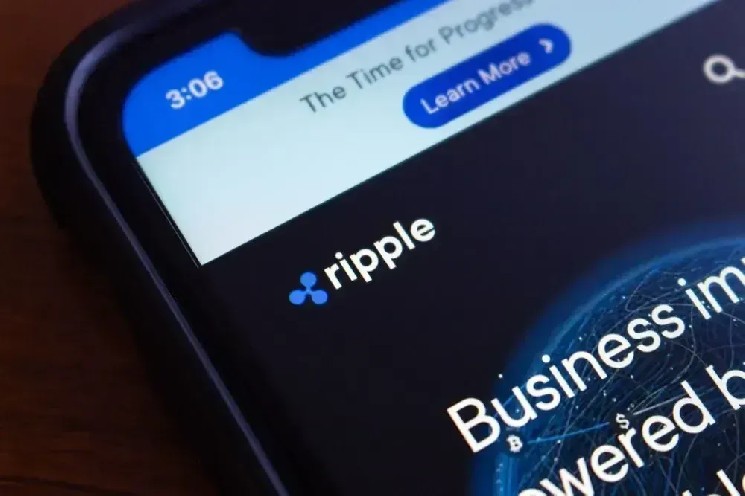We are now at the dawn of the DeSci era, with bottom-up capabilities established to kickstart scientific DAOs. The combination of speculation, commercialization, and philosophical reform is opening up new markets for scientific research. R&D is being packaged as a brand and sold to consumers. Tokens are a form of pay-per-use scientific research branding.
Original: DeSci Manifesto (zeeprime)
Author: mattigags
Translated by: Felix, PANews
Cover: Photo by Martin Martz on Unsplash
Recently, Binance Labs announced an investment in the decentralized science (DeSci) protocol BIO Protocol, which is Binance Labs' first investment in a DeSci project (PANews note, CZ also participated in a DeSci-themed event during Devcon in Thailand). However, research on the DeSci sector is relatively scarce, and this article aims to explore the value and significance of DeSci, and how it will "disrupt" scientific research.
The word "science" has recently been misused to support dogmatism, causing the term to be largely distorted or misunderstood, using science as a religious prayer to solve something goes against the original spirit of science.
According to the definition of David Deutsch, science is the pursuit of better explanations, not a set of ultimate truths. Science is about the discovery of new knowledge, and new knowledge itself is infinite, with new knowledge that better explains the world replacing the old knowledge. Therefore, science is self-correcting and constantly evolving.
The "De" in DeSci stands for decentralization, which is an underlying technology that can fundamentally change the way scientific research is funded. Trustworthy neutral currencies and finance can quickly mobilize capital globally in a permissionless manner.
Many people often go beyond "decentralization" and jokingly refer to "degen" as part of DeSci. Financial degens are a meme archetype that describes adventurous characters when trading crypto assets. In this case, degen is redefined as those who gamble on the results of scientific experiments. Risk-taking is a necessary part of unlocking new knowledge, with individual negative effects, but overall greater consequences.
Many people like to depict Degen scientists as independent scientists of the Victorian era. People like Michael Faraday. He often self-funded risky experiments, and was a degen. The original scientists were truly curious entrepreneurs, willing to take risks, rather than trained professionals.
This was before the government became the main sponsor of science and academia became a bureaucratic class. Today, science is increasingly dependent on politics and rules, limiting the ability to find new knowledge. Politics cultivates obedience and is dominated by power.
It can be said that science has deviated from the spiritual core of the early Enlightenment pioneers, when science attracted more adventurous people who were passionate about seeking knowledge, and some of their views were very controversial. Disobedience is part of breaking the status quo or bottleneck.
Therefore, DeSci is a way to separate research from the existing power structure, where incentives are misaligned with rapid progress. In summary, DeSci can be defined as an experimental exploration seeking better explanations, independent of institutional or state control of funding. It is a market above status, with the explicit goal of rapid information discovery. Will this be the best choice for achieving rapid technological progress?
3 Points
During the Enlightenment era, exclusive privileges were granted to a wider audience. The rapid development of science and industry in the 18th century was built on these expanding freedoms. Knowledge began to increase rapidly.
Cryptocurrencies are fundamentally enabling permissionless access to (new) markets. They are opening up the exclusive privileges of central banks and commercial banks, brokers and custodians to the public, and there is no inherent meaning in bundling politics and power with the market.

Today, as science becomes increasingly dependent on authoritarianism, the state, politics and power, it is gradually becoming a form of bureaucracy. Institutions are in "autopilot mode", disproportionately biased towards regulation rather than experimentation.
In the words of Nietzsche, cryptocurrencies have infused a touch of the Dionysian spirit into the Apollonian spirit; they have injected the primitive experiment into the fragile and bloated bureaucracy, opening up new possibilities for the market to explore the frontier.
This is not without its flaws. The frontier is often chaotic, and profits are more illusory than real. The question is whether the overall benefits outweigh the costs. The author's view is that while most DeSci projects will fail, a few winners can achieve very positive results. Just like startups, most of them fail, but a few companies can thrive.
To further elaborate on the overall view of DeSci, the author presents three intertwined but separable independent arguments.
- Philosophical argument: DeSci separates science from academia, bureaucracy, and government funding by introducing crypto incentives and funding mechanisms. Scientists become entrepreneurial "tinkerers" rather than bureaucrats optimizing grant allocations.
- Degen argument: Biotech stocks are known for their volatility and direct betting on clinical trial results. If you can bet on the outcome of trials and incorporate them into a research plan early on, degens might launch "outrageous" research tokens on pump.science (rather than memecoin).
- Commercial argument: DeSci brings science closer to the masses through open funding. Science becomes a product that users can purchase and own. Imagine a memecoin that has actual utility or promises.

Tokens as Access
Similar to how we now choose facts based on ideology, we may be entering an era of consumption. In this era, culture is more important than the product itself. The crypto space has been selling culture rather than products. Since Bitcoin, Ethereum, and Solana are all selling market share in blockchain space, for some reason, this commodity is abundant, and the premium is attributed to the specific token.
It can be argued that on more mature and more expensive chains, the security guarantees are higher, so it's not just a premium commodity. But the meme premium has played a role. The rotation of narratives is more important than actual progress. To some extent, tokens have become a combination of brand and product.
The meme coin craze is an extension of this trend. Pump.fun made $150 million in a year by introducing meme coins into a simple social game of ups and downs. Each token becomes a productized meme with a higher or lower meme premium.
Tokens are a means of expanding the market into new domains, and the productization of memes is a typical example. This tokenized liquidity can be brought into scientific research.
The combination of speculation, commercialization, and philosophical reform opens up new markets for scientific research. R&D is packaged as a brand and sold to consumers. Tokens are a form of pay-per-use scientific research branding.

To reiterate the understanding of tokens, tokens are both products and a novel form of online organization. They can:
- Rapidly form global capital (around purpose/product/R&D, etc.)
- Co-create and attribute (social recognition + channeling financial value to the origin of creativity)
- Coordinate incentive mechanisms (create cohesive microeconomic units)
- Serve as governance proxies
Starting from culture and memes, they have the potential to transform consumption culture from UGC (user-generated content) to UGP (user-generated products). The question of whether tokens are a form of securities is the wrong question, as securities will one day become a form of tokens. Are books a type of Bible, or is the Bible a type of book?
Plus Ultra
To achieve this, scientific research can be packaged with popular culture memes/culture/icons as products, and then liquidity or funding can be directed to them through goals/promises. This is a shift from an influencer-driven target product culture to a vision-driven commercialization of science.

Let science become a fully commercialized endeavor, rather than a tool recognized by the government and/or corporations. Just like the voyages to the New World centuries ago, everyone can fund very dubious new territory explorations.
In 2006, Nick Szabo published an article titled "How to Succeed or Fail at the Frontier", comparing the voyages of Portuguese sailors from Africa to Japan establishing commercial empires with the massive imperial naval fleets of 15th-century Chinese emperors. One was an agile commercial activity, the other a display of imperial glory.
Whether applicable to space exploration or Earth science, it's a good idea to explore a more decentralized way of funding small or grandiose scientific experiments. The frontier should never be a "credentialed garden".
This may be why information technology has developed so rapidly, while the frontier has not been subject to artificial constraints. You can be a college dropout and then develop technology that changes the world. There's no need to spend years getting a Ph.D., as the rules of the game are not favorable to experimentation.
For some, this is a radical idea, but just as consumers spend money on questionable products because they belong to a certain idol (influencer), a portion of funds can be diverted to science research packaged as tokens. Speculation plays a role, but the noble idea of progress also plays a role.

We are now in the dawn of the DeSci field, with bottom-up capabilities established to launch scientific DAOs and top-down liquidity carriers built through some protocols (like bio.xyz). The bottom-up cultural movement will ultimately fund and develop products (conduct scientific research).
Disclaimer: As a blockchain information platform, the articles published on this site represent the views of the authors and guests only, and are not related to the stance of Web3Caff. The information in the articles is for reference only and does not constitute any investment advice or offer, and please abide by the relevant laws and regulations of your country or region.
Welcome to join the official Web3Caff community: X(Twitter) account | WeChat reader group | WeChat public account | Telegram subscription group | Telegram discussion group








